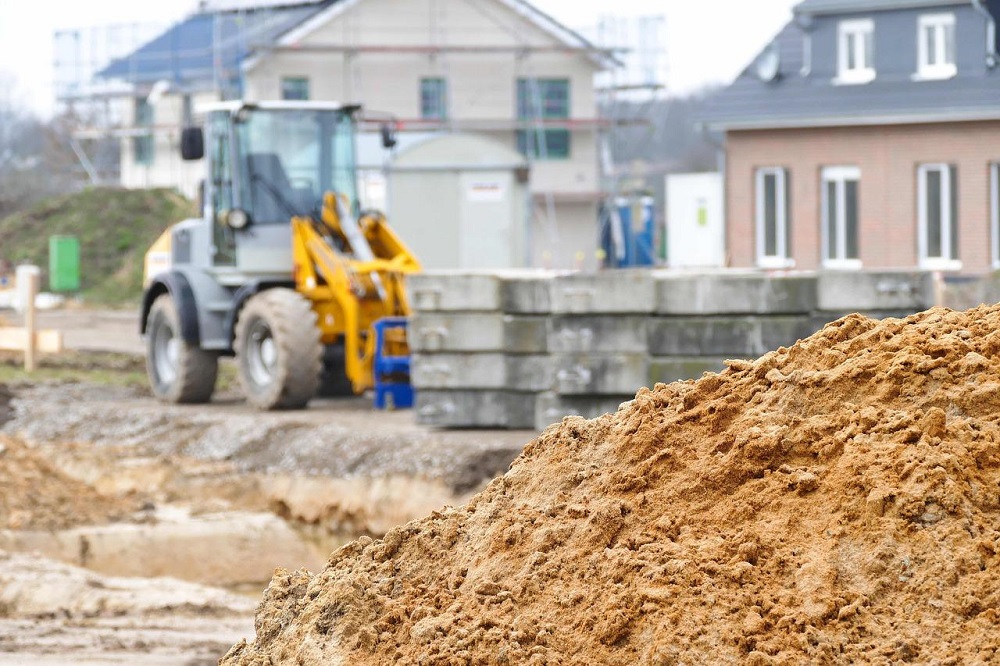Labour’s building boom not possible, construction authorities say

The head of the largest housebuilding firm in the United Kingdom says Labour’s vow to build 1.5 million homes during this parliament is not possible due to a severe skills shortage.
Asked if there were enough workers to build the extra homes promised by the Prime Minister and his deputy Angela Rayner, Barratt Redrow chief executive David Thomas told the BBC: “The short answer is no.”
He added that Sir Keir’s government would have to “revolutionise the market, revolutionise planning, revolutionise methods of production” to make reaching their homebuilding target achievable.
“They’re challenging targets, I think we have to recognise that this is a national crisis,” Mr Thomas said.
Issues
The Home Builders Federation (HBF) echoed Mr Thomas’ sentiments, saying skills shortages, an ageing workforce and Brexit are among the issues.
An HBF statement to the BBC said the UK “does not have a sufficient talent pipeline” of builders to meet Labour’s goal, citing recruitment constraints with poor perception and lack of training within schools, not enough apprenticeships and the costs of taking on apprentices.
The industry body added the sector has not “attracted” enough recruits in recent years, saying a quarter of tradesmen are aged over 50.
The concerns from within the construction industry have dampened Sir Keir Starmer’s pledge to reach construction targets after he said on December 5 his government would “absolutely” push development through despite environmental red tape.
Sir Keir said he wanted to “get the balance right with nature and the environment” but that “a human being wanting to have a house” has to be the top priority.
As well as the pledge to build 1.5 million homes, the Labour government intends to make decisions on 150 major infrastructure projects during this parliament.
The updated national planning policy framework (NPPF) commits to a “brownfield first” strategy, with disused sites that have already been developed in the past prioritised for new buildings.
Default
The default answer when a developer seeks to build on brownfield sites will be “yes”, but the Government says these sites will not be enough for the number of homes needed.
Councils will be ordered to review their greenbelt boundaries to meet targets by identifying lower quality “grey belt” land that could be built on.
The framework defines the grey belt for the first time as green belt land that “does not strongly contribute to green belt purposes”.
Those purposes include limiting urban sprawl, stopping neighbouring towns merging into each other and preserving the special character of historic towns.
Safeguarding the countryside from encroachment and assisting in urban regeneration are no longer included as green belt purposes.
“For years, we have had not enough houses being built. That means that individuals and families don’t have the security that they want,” Sir Keir said during a visit to a construction site in Cambridge.
“We are determined to break through that, to do what’s necessary.
“Of course we want to get the balance right with nature and the environment, but if it comes to a human being wanting to have a house for them and their family, that has to be the top priority”.
Guidance
More specific guidance on how local authorities can assess their green belt land is due to come in January.
The Government announced £100 million of additional cash for councils, along with 300 additional planning officers, to speed up decision-making processes.
The extra money can be used to hire more staff or consultants and to carry out technical studies and site assessments.
The NPPF reforms are just one element of the Government’s plans to rewrite the planning rules to make it easier to build homes and major infrastructure projects.
The forthcoming Planning and Infrastructure Bill is intended to rip up red tape and make it faster for projects to be approved.
Support our Nation today
For the price of a cup of coffee a month you can help us create an independent, not-for-profit, national news service for the people of Wales, by the people of Wales.






Is the UK looking at modular housing? That can be knocked out in factories at volume and lowers the skills needed to get going. Other countries seem to do this well. The usual suspect builders have a vested interest on keeping the brick and block method going.
Modular offers a good solution for some of the backlog. However the skills deficiency in UK wide is alarming especially when we have wasted about 20 years churning out graduates in all sorts of subjects that don’t enable them to enter the jobs market at a point where they feel they are valued. Now meeting bright youngsters who have seen the light, helped by daft costs of studying, and opted for training in crafts. We need more of these new entrants and not just into building but manufacturing too.
Been reading and listening to some interesting commentary on modular used across the EU. I am not sure the graduate excuse thing is a reality? People are free to choose and somehow I think that a building trade would never be on the wish list of many graduates. Seems an easy way out for blame perhaps. Do we have proof that this is the case? Brexit did a number on us in spades for the building trade. Free movement of labour ended. Then covid. It seems to be a problem that has festered since the 80’s but not a lot… Read more »
A skills shortage caused by Blair & Co….
They allowed millions of east Europeans into the country where some were masquerading as trades people who undercut our very own British born workforce who subsequently left the industry…
Blame Labour for it…
Any evidence to back this racist fantasy up?
gbeebies innit.
Da iawn. Llai o wladychu yng Nghymru felly. Does dim angen yr holl dai newydd hyn arnom. Eidioleg llawyr. Mae ein poblogaeth naturiol yn gostwng.